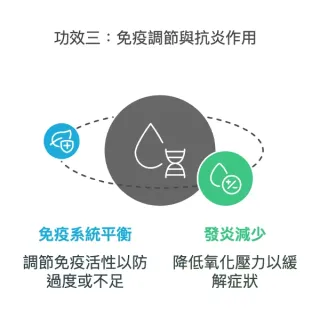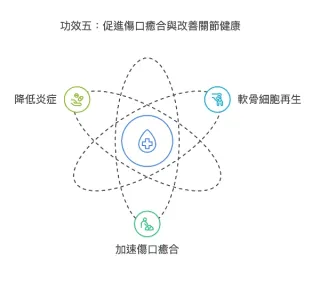When you start paying attention to health and skincare, you may have heard the term "exosome." These tiny yet powerful biological molecules are revolutionizing the future of medicine and beauty.
What exactly are exosomes, and what benefits do they offer? In this article, we will explore the five core benefits of exosomes to help you better understand how they impact our health and beauty!

1. What Are Exosomes? Unveiling the Secret of the "Mysterious Couriers" Between Cells
1.1 Introduction to Exosomes
With advancements in biomedicine, the term "exosome" has gradually entered the public eye. Exosomes are nano-sized vesicles naturally released by cells, containing various bioactive substances such as proteins, RNA, and lipids. They act like "messengers" between cells, transmitting important biological information and facilitating intercellular communication to regulate physiological functions.
1.2 How Do Exosomes Benefit the Human Body?
Exosomes are not just "couriers" between cells; they are powerful regulatory tools. They carry microRNAs (miRNAs), signaling proteins, enzymes, lipids, and other crucial molecules that influence the gene expression and physiological activities of target cells. The primary functions of exosomes in the human body include:
In summary, exosomes are not merely cellular waste products but highly efficient biological signal carriers. They play a crucial role in maintaining effective communication and collaboration between cells, thereby impacting our health and beauty.
2. What Are the Sources of Exosomes? 3 Major Sources Explained
Now that we have introduced what exosomes are, let's explore their sources. Exosomes can generally be classified into three main categories:
These exosomes have various applications in medical and cosmetic fields. With ongoing research, new sources of exosomes are continually being discovered.

2.1 Mesenchymal Stem Cell (MSC)-Derived Exosomes
Mesenchymal stem cells (MSCs) are one of the most well-researched and widely used sources of exosomes. Stem cells have powerful tissue repair and anti-inflammatory properties, and their released exosomes carry abundant growth factors, miRNAs, and anti-inflammatory proteins, allowing them to exert therapeutic effects without direct stem cell transplantation.
2.2 Blood-Derived Exosomes
Exosomes in the blood originate from red blood cells, white blood cells, platelets, and other cellular components. They carry molecules related to immune regulation, inflammation, and metabolic processes. Studies suggest that blood-derived exosomes could serve as biomarkers for diseases like cancer and cardiovascular conditions and even be used as therapeutic tools.
2.3 Animal and Plant-Derived Exosomes
Exosomes are not exclusive to the human body; animals and plants also produce them. For instance, milk contains exosomes that promote gut health and enhance immune function. Additionally, certain plants (such as grapes and citrus fruits) produce nanovesicles similar to exosomes, which are gaining attention in the healthcare and beauty industries.
2.4 Other Emerging Sources of Exosomes
Beyond the three main sources mentioned above, scientists are actively exploring new exosome sources, including:
-
Bacterial exosomes: Some probiotics secrete exosomes that may help regulate gut microbiota and boost immunity.
-
Marine-derived exosomes: Studies indicate that exosomes from marine microorganisms and algae may have anti-inflammatory and antioxidant properties.
-
Yeast exosomes: Research suggests that yeast exosomes may contain components that promote skin repair, immune modulation, and antioxidant effects.
As exosome technology advances, these emerging sources could have broader applications in medical and skincare fields, offering more possibilities for health and beauty.
3. Five Core Benefits of Exosomes: From Cell Repair to Anti-Aging
Now that we have covered the basics of exosomes, let’s explore their benefits. Beyond serving as messengers between cells, exosomes are natural tools that help restore health and maintain a youthful appearance. Here are five core benefits of exosomes that impact health and beauty:
Benefit 1: Tissue Repair and Regeneration

Exosomes have powerful repair and regenerative capabilities, helping damaged cells recover and promoting tissue healing, making them a crucial element of regenerative medicine.
✅ How do they work?
-
By carrying growth factors and repair-related RNAs, exosomes accelerate cell proliferation and differentiation, facilitating tissue repair in the skin, organs, and bones.
-
Studies show exosomes have potential therapeutic effects on burns, fractures, and tendon injuries.
💡 Clinical Applications: Research is exploring exosome therapies for cardiovascular diseases, liver regeneration, and brain injury repair, potentially making them an alternative to stem cell therapies in the future.
Benefit 2: Anti-Aging and Skin Rejuvenation

Want to reduce wrinkles and enhance skin elasticity? Exosomes may be the next-generation anti-aging solution!
✅ How do they work?
-
Stimulate collagen production, making skin firmer and more elastic.
-
Reduce wrinkles and fine lines, improving sagging caused by aging or environmental damage.
-
Enhance skin hydration and radiance, restoring youthful vitality.
💡 Beauty Applications: Many premium skincare brands have incorporated exosomes into serums and masks. Exosome-based therapies are also being developed for deep skin repair.
Benefit 3: Immune Regulation and Anti-Inflammatory Effects

Exosomes not only repair cells but also regulate the immune system and reduce inflammation, offering potential solutions for chronic and autoimmune diseases.
✅ How do they work?
-
Balance immune responses, preventing overactivation (as in autoimmune diseases) or suppression (as in chronic infections).
-
Reduce inflammation and oxidative stress, potentially benefiting conditions like arthritis and inflammatory bowel disease.
💡 Application Scope: Exosomes have shown promising results in studies on inflammatory diseases like Crohn’s disease, psoriasis, and rheumatoid arthritis, making them a potential future anti-inflammatory therapy.
Benefit 4: Nerve Repair and Treatment for Neurodegenerative Diseases

Nerve cells have limited self-repair ability, but exosomes may offer hope for treating conditions like Parkinson’s disease, Alzheimer’s disease, and post-stroke recovery.
✅ How do they work?
-
Promote neuron regeneration and repair damaged nerve cells.
-
Reduce neuroinflammation and slow neurodegenerative disease progression.
-
Enhance neural communication, aiding recovery from stroke and brain injuries.
💡 Latest Research: Studies show exosomes may help clear beta-amyloid proteins (toxic proteins linked to Alzheimer’s disease), potentially aiding in its treatment.
Benefit 5: Wound Healing and Joint Health Improvement

Exosomes also play a significant role in joint and muscle repair, making them beneficial for athletes, arthritis patients, and post-surgical recovery.
✅ How do they work?
-
Promote cartilage regeneration, reducing discomfort from osteoarthritis.
-
Accelerate wound healing and minimize scar formation after surgery.
-
Alleviate joint inflammation and chronic pain, improving mobility.
💡 Application Focus: Exosome therapies are gaining attention in sports medicine and orthopedics, potentially becoming a new solution for joint degeneration.
4. What Should You Be Aware of After Learning About the Five Amazing Benefits of Exosomes?

Although exosomes are naturally secreted by cells, it is important to consider the following precautions before using exosome-based products, such as exosome therapy, serums, or supplements, to ensure safety:
- Avoid Unknown or Unlabeled Exosome Products: Ensure that the source of the exosomes is reliable and meets personal needs and safety standards.
- Consult a Professional Doctor: If considering exosome therapy, it is essential to be evaluated by an experienced physician.
Current research suggests that exosomes are relatively safe and do not trigger strong immune rejection. However, some potential risks should still be noted:
- Temporary Redness and Swelling: Some individuals may experience mild swelling, redness, or slight pain after undergoing exosome therapy.
- Mild Allergic Reactions: A small percentage of people may develop allergic reactions to exosomal proteins, such as mild itching, rashes, or discomfort.
- Temporary Fatigue or Dizziness: In rare cases, users may feel fatigued or slightly unwell after the treatment, but these symptoms usually resolve within a few hours.
- Infection Risk: If the medical environment for exosome therapy is not sterile, or if exosomes from unknown sources are used, there may be a risk of infection.
5. Common Questions About Exosomes
5.1 Can Exosomes Treat Cancer?
Research has shown that cancer cells can also release exosomes, using them to influence the behavior of other cells. As a result, exosomes play a crucial role in cancer diagnosis and treatment.
Potential Applications of Exosomes in Cancer Treatment:
- Cancer Biomarker Diagnosis: By detecting exosomes in blood tests, doctors may be able to identify cancer at an earlier stage, improving treatment success rates.
- Personalized Cancer Therapy: Scientists are exploring ways to modify exosomes to carry anti-cancer drugs, allowing for more precise targeting of cancer cells while minimizing damage to healthy cells.
However, it is important to note that exosome-based cancer treatments are still in the research phase and have not yet been officially established as clinical therapies.
5.2 Can Exosomes Treat Stroke?
Neural damage caused by strokes is often difficult to repair. However, studies suggest that exosomes may have the potential to promote brain cell recovery and reduce inflammation.
Potential Benefits of Exosomes for Stroke Treatment:
- Aid in nerve repair and reduce the impact of brain cell damage.
- Promote angiogenesis (formation of new blood vessels) to improve cerebral blood circulation and oxygen supply.
- Reduce inflammation and lower the risk of neurodegeneration.
Currently, scientists are conducting animal studies and clinical trials to evaluate the effectiveness of exosomes in stroke patients. In the future, exosome therapy may become a next-generation treatment for neural repair!
6. Conclusion
The discovery and application of exosomes have undoubtedly opened new frontiers in medicine and beauty. Exosomes are not just "messengers" between cells but also powerful biological tools.
However, while exosomes offer many exciting benefits, it is crucial to remain rational and avoid blindly believing in their effects. Many exosome-based technologies are still in the research stage, and some applications have yet to undergo full clinical validation. Therefore, choosing products and therapies supported by scientific research and using them under the guidance of medical professionals is essential to ensuring both safety and effectiveness.























